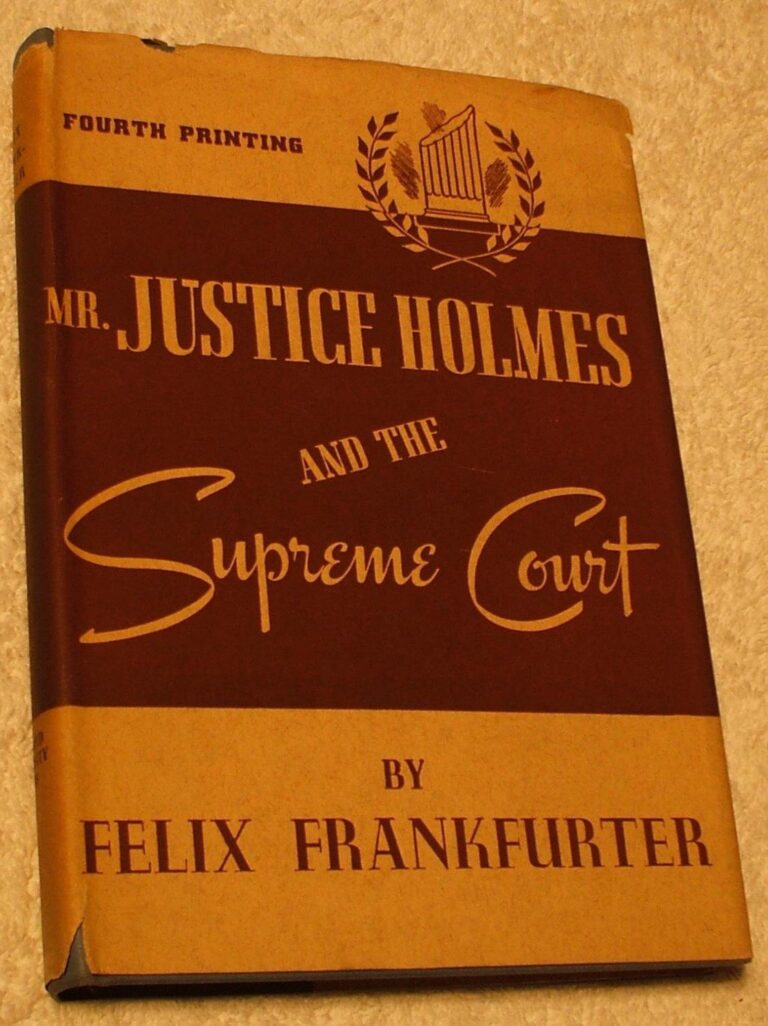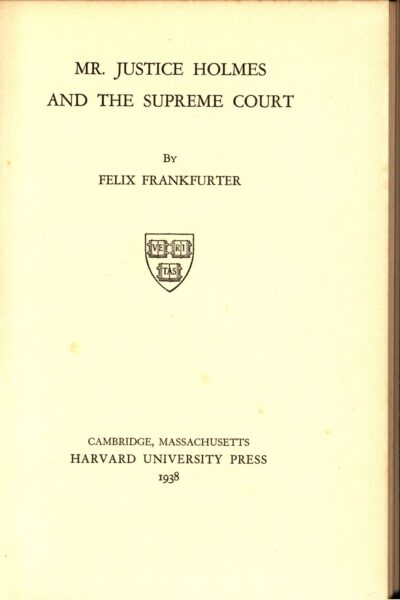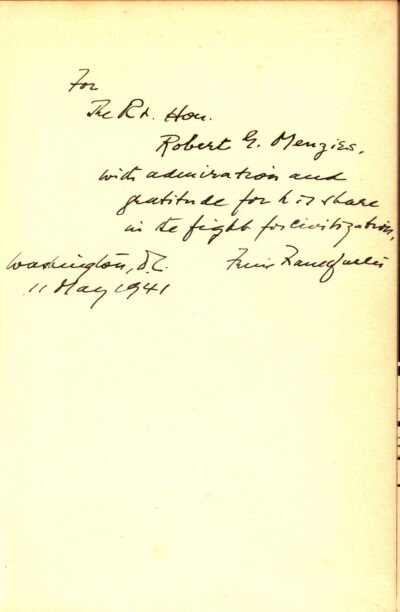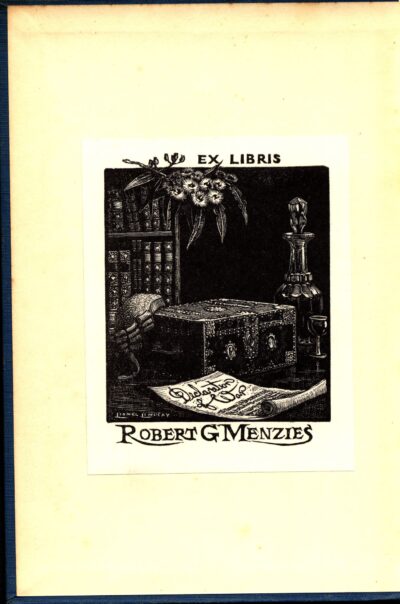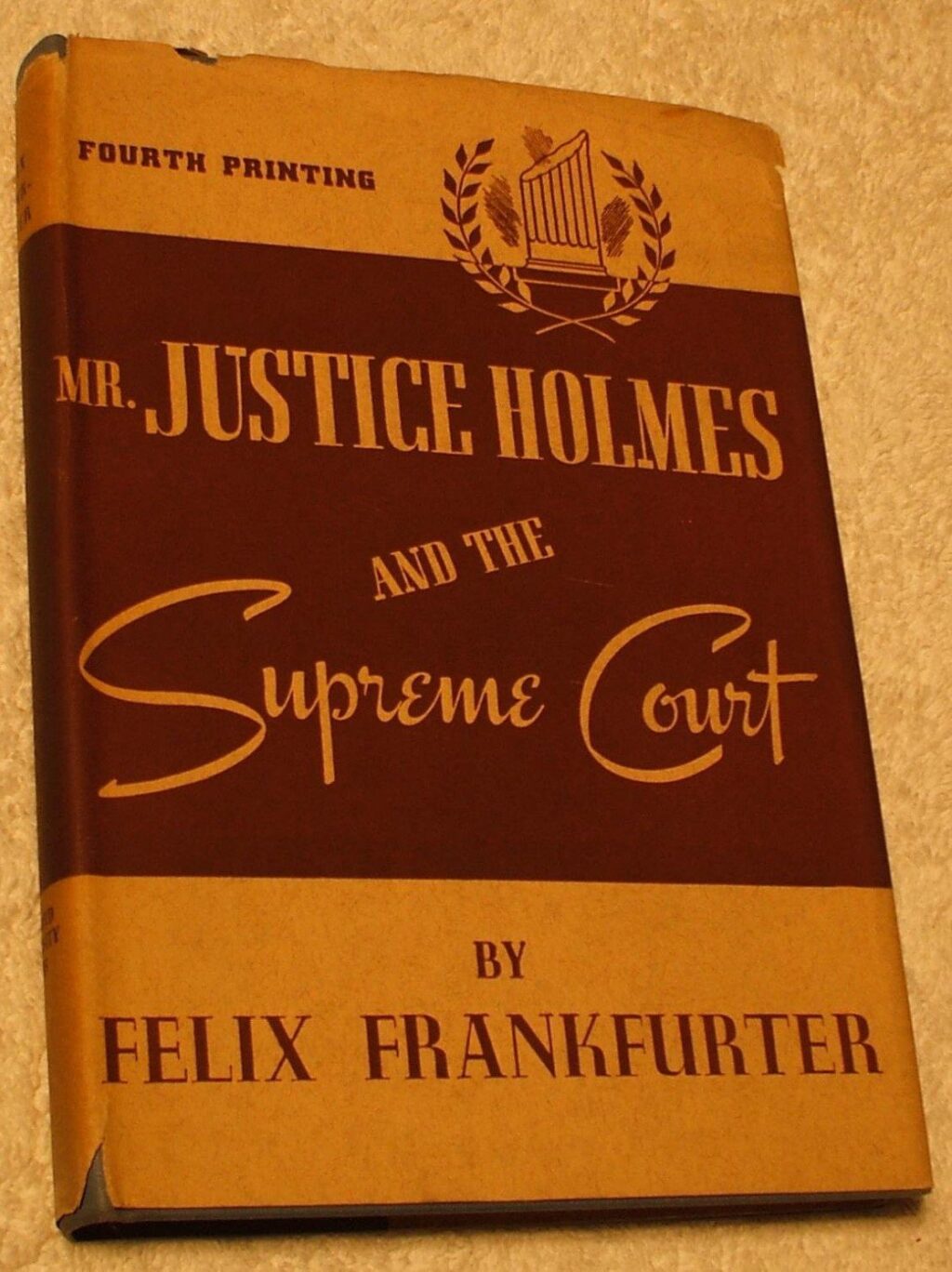Felix Frankfurter, Mr Justice Holmes and the Supreme Court (1938)
Felix Frankfurter was an American lawyer, professor and jurist who served on the American Supreme Court from 1939 until 1962. Frankfurter is best remembered as an advocate for judicial restraint, a legal theory which is the opposite of judicial activism, emphasising the need for judges to keep their personal opinions out of their judgements and to not disallow laws unless there was a clear constitutional reason to do so. This was a theory that had previously been advocated by Oliver Wendell Holmes, the subject of Frankfurter’s book, who maintained a deference to the decisions of elected legislatures and did not want to see them flippantly overturned by judges.
Born to a Jewish family in Vienna in 1882, Frankfurter was from a family with a long rabbinic tradition which emphasised book learning. Migrating to New York when he was 12 years old, Frankfurter pursued a career in the law while also involving himself in politics. Curiously, he combined progressive views with an association with Republican politicians, serving in the Taft administration before drifting towards the Democrats. Frankfurter helped to found the American Civil Liberties Union, and became a trusted adviser of Franklin Roosevelt.
Frankfurter was surprisingly well known in Australia, receiving a tribute written by Sir Owen Dixon, Menzies’s legal mentor, in the Yale Law Journal. Dixon pointed out that Frankfurter’s legal opinions had been cited in numerous Australian cases, including the decision to overturn Chifley’s banking legislation. Dixon spoke lyrically about Frankfurter’s various qualities:
‘No one can be more generous than Frankfurter in making time for those whom he is asked to see and as a result a quite extraordinary number of lawyers in Australia may say that they know him personally… The high quality of his writings, judicial and extra-judicial, would in any case have caught the attention of students of constitutional law in Australia, to say nothing of its other votaries, both judges and counsels… You will see Frankfurter’s name again and again in the reports of the constitutional decisions of the High Court. When you find in judicial writings repeated reliance upon the words of a contemporary judge, especially of another country, you may safely infer that his opinions tend to throw new light in dark places and to comfort other judicial wayfarers by giving apt and reassuring pointers to a true deliverance’.
It is clear that Menzies was one of the Australians receiving Frankfurter’s hospitality to which Dixon refers. The Menzies Collection contains four books written by Frankfurter and two inscribed by him. His copy of Mr Justice Holmes and the Supreme Court contains an inscription reading ‘For the Rt. Hon. Robert G. Menzies, with admiration and gratitude for his share in the fight for civilization. Felix Frankfurter. Washington D.C. 11 May 1941’.
The book is thus an artefact of Menzies’s legal connections which stretched as far as the United States, as well as Menzies’s wartime visit to Washington in May 1941, during which he met Roosevelt and lobbied for the American Government to join the Allies six months before Pearl Harbor. It is clear from newspaper reports that Menzies would frequently see Frankfurter during trips to Washington in his second stint as Prime Minister, even spending private evenings with him, and their mutual affection is on display in another inscription from 1957 in which Frankfurter describes ‘the lawyer in you – and he is deep in you… greetings of a devoted friend’.
While Menzies was clearly happy with the High Court decision on banking legislation which was influenced by Frankfurter, one can only imagine he wanted a greater acceptance of ‘judicial restraint’ when it came to his attempt to ban the communist party. Frankfurter wanted the Constitution of the United States to evolve gradually with society, rather than being too rigid, and this fits with much of what we know of Menzies’s attitude towards the Australian Constitution.
You might also like...
Sign up to our newsletter
Sign up for our monthly newsletter to hear the latest news and receive information about upcoming events.

